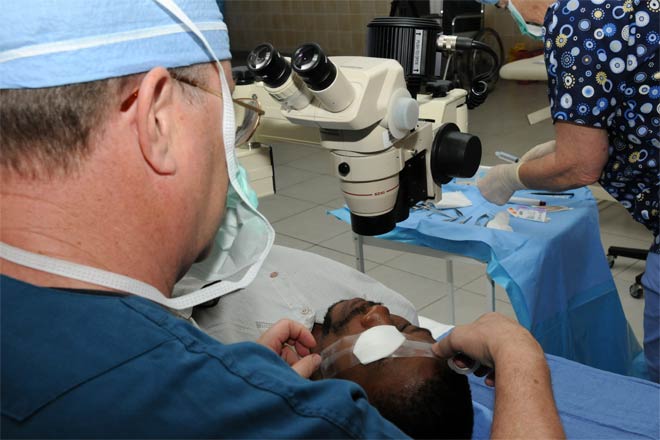
With lots of hospitals and eye clinics around your area, you might be confused where to go and which doctor you’ll be having an appointment with. Especially if it will be your first time to consult, you might find yourself in a dark place making a decision.
To address your concern, here are some questions you can ask yourself before choosing an ophthalmologist:
- How well-established is the doctor?
Choose a doctor that has a good reputation to the whole community. You can know this through recommendations from your friends and family members. You’ll be sure that the doctor is good if they already had long years in the field. You can also ask if they’re holding a position in a medical board or management body in the hospital or clinic.
You might also want to check patient satisfaction surveys or their clinic’s homepage if they have any. Knowing what other previous patients are saying about the doctor can help you decide if you’ll go ahead and consult with them.
- What is the primary concern for visiting an ophthalmologist?
Aside from an annual health checkup, you have a concern to raise that’s why you’re seeking help from an ophthalmologist. However, you should not get confused between an ophthalmologist and an optometrist.
If your concern is about complications and diseases and your objective is to get checked and treated, then you need to go to an ophthalmologist. They are licensed medical doctors who specialize in treating eye conditions.
On the other hand, if your primary concern is basic eye care or you have experienced a sudden change in your vision, you need to consult with an optometrist. They are responsible for recommending you to wear prescription glasses or contact lenses.
- Under what specialization is your concern is covered?
Moreover, ophthalmologists have the required knowledge in treating all problems regarding the eyes. However, they also have sub specialization where their expertise lies in one or two branches of ophthalmology. It’s best if you direct your concern based on their specialty.
Let’s say you wanted to get a LASIK treatment. You might as well visit an eye surgeon, so that all of your concern will be addressed appropriately. This is also to avoid referring you to different doctors, especially if your situation is considered as a special or a rare case.
- What are their credentials?
Your doctor’s credentials are strengthened not just by their educational background, but also the knowledge they’ve acquired even after they have completed their doctorate. Select an ophthalmologist that has trainings and certifications relevant to their field of specialization. As a good doctor, they need to be updated with knowledge and techniques on how they can provide better service to their patients.
Their professional affiliations can also be one of your considerations when choosing an ophthalmologist. It’s not easy to become an affiliate doctor, and it usually requires recognition before a doctor becomes qualified to join an organization.
- How extensive is their knowledge?
Nowadays, the edge of top-notch doctors is solely based on their knowledge in the use of modern technology equipment and techniques as a part of their practice. If you are choosing an ophthalmologist, make sure that they use advanced technology to examine and perform medical procedures to their patients.
Technology is very vital when performing medical procedures in patients since they are made to perform tasks that are very precise and accurate. If this is combined with the technical expertise of the doctor, you don’t have to worry about serious complications associated with the procedure.
- What are their payment terms?
If you’re consulting on a less severe eye problem, then this is not a big deal for you. However, if your concern is associated with major eye complications such as glaucoma and cataract, or even going for eye surgery, you wanted to be fully aware of the payment options offered by your doctor.
If you have a health insurance, you have to check if they’re affiliated with your insurance group. Or if you don’t have one, you need to inquire about their payment terms. After all, it’s very costly to undergo a medical procedure nowadays, and you can’t save up for it because sometimes it just happens unexpectedly.
Final thoughts:
Careful consideration has to be made before deciding which ophthalmologist you’ll consult with. You have to make sure that you’ll be entrusting yourself or your family not just to a good one, but also has the compassion. Asking the questions above will help you come up with a right decision.
